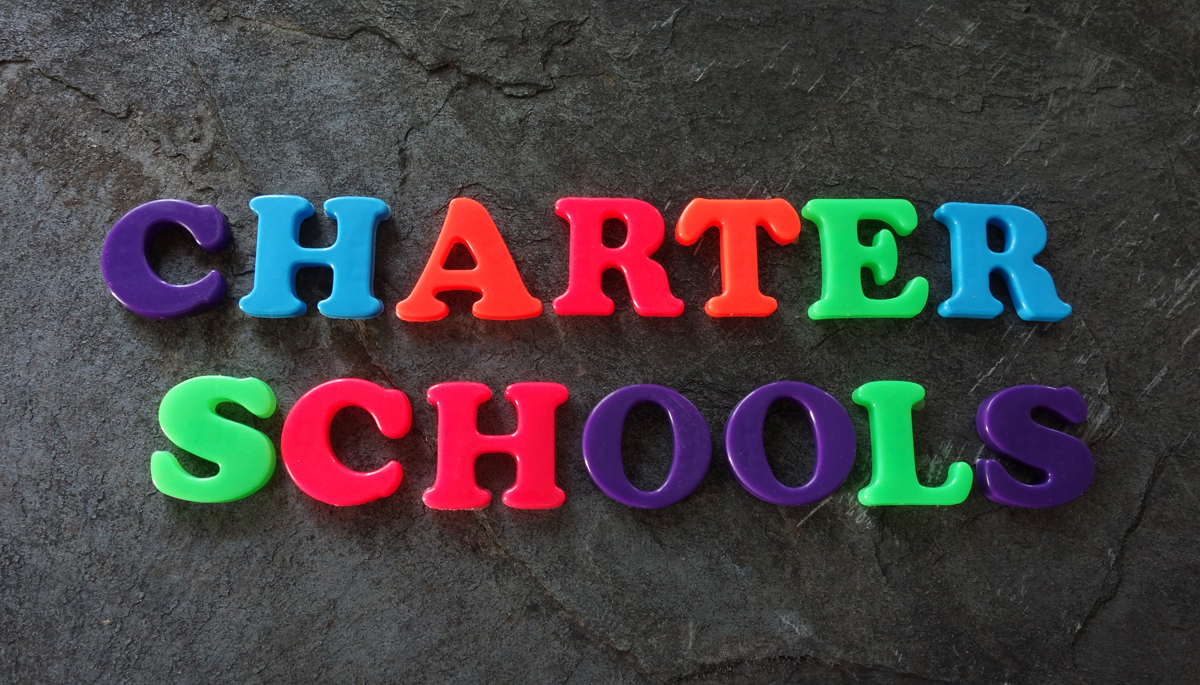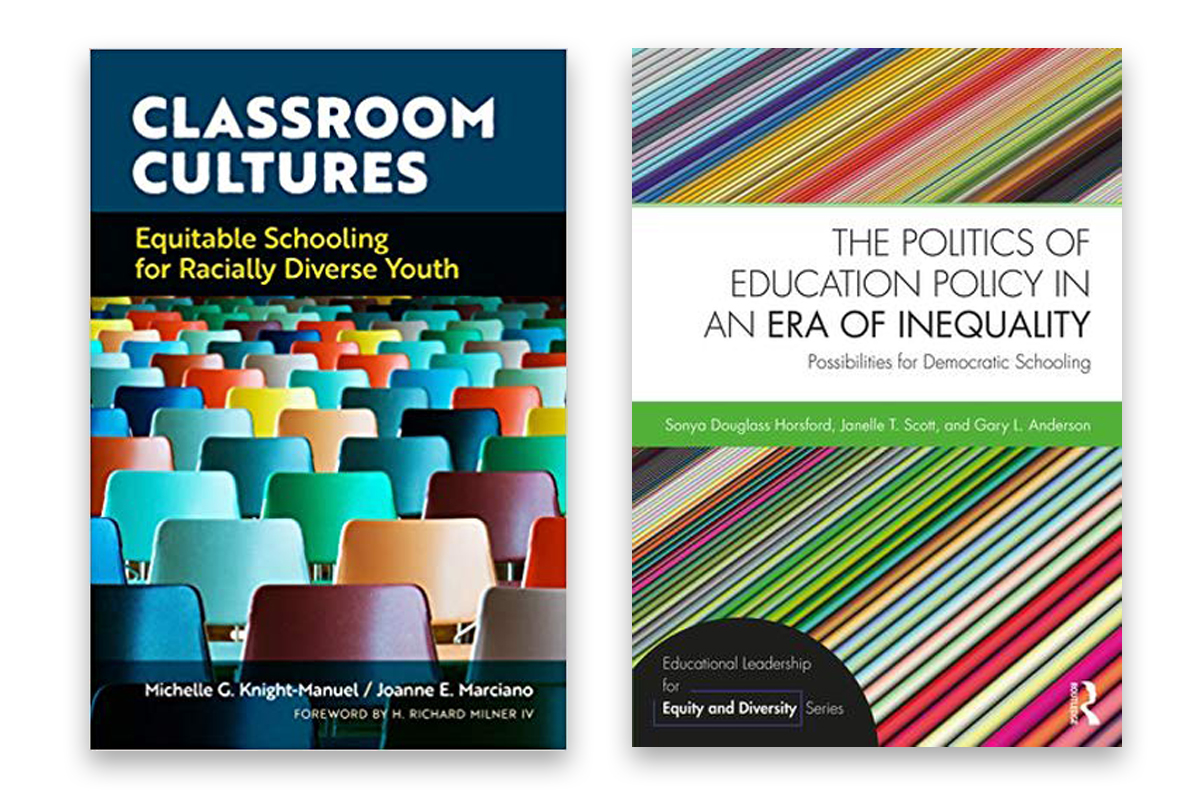January

The State of Nutrition Education
Two reports from TC’s Laurie M. Tisch Center for Food, Education & Policy show that nutrition education in New York State and New York City is extremely vulnerable to federal and state budget cuts. The first and only comprehensive analyses of federal, state and city policies and programs that can support nutrition education illustrate that food and nutrition education is woven throughout many government initiatives, yet lacks coordination and urges a greater role for educators and community members in designing and implementing nutrition education policy.
Exercise and Huntington's Disease
Preliminary evidence suggests exercise and physical activity can help people with Huntington’s disease (HD) with motor function, gait speed and balance, finds a review of studies co-authored by Lori Quinn, Associate Professor of Movement Science & Kinesiology, and Director of TC’s Neurorehabilitation Research Lab. The review in the Journal of Huntington’s Disease suggests exercise and physical activity offer HD patients a range of other physical and social benefits.
February

What Charter Schools Have to Offer
Educational practices of the most successful charter schools could meaningfully reduce the nation’s racial and socioeconomic achievement gaps — but only if adopted in a significant number of public schools, according to a new synthesis of existing charter school research by Sarah Cohodes, Assistant Professor of Education Policy and Economics. Cohodes’s article, “Charter Schools and the Achievement Gap” in the journal The Future of Children, highlights that urban charter schools serving low-income and minority students (including many “no-excuses” charters) produce significant gains in test scores.
March

Getting Real with Second-Language Teaching
Second language (L2) teaching often emphasizes textbook dialogues over real-life interactions, writes Hansun Waring, Associate Professor of Applied Linguistics & TESOL, in “Teaching L2 Interactional Competence: Problems and Possibilities,” in Classroom Discourse. Waring argues for using teachable “patterns in observable talk and conduct.” She offers a model classroom lesson centered on analyzing a recorded telephone exchange, filled with interruptions and incomplete sentences, in which one friend asks another for help with his car. The textbooks incorporating such teaching are “yet to be written,” Waring says, but “the field is wide open” to pedagogical innovation.
May

Can Poverty Alter Brain Development?
Kimberly Noble, Associate Professor of Neuroscience & Education, and colleagues at three other universities, launch a nationwide study to test their hypothesis (suggested by Noble’s previous research) that income level causatively affects brain development. The researchers will compare the impact of two different levels of cash supplements, given to randomly selected low-income mothers following the arrival of their newborns in maternity wards. Family life will be measured in 12-month intervals when children reach ages one and two. At 36 months, children will be comprehensively tested for their cognitive and brain development.
Making HR Relevant
Lyle Yorks, Professor of Adult Learning & Leadership, speaks at the annual meeting of the Association for Talent Development, on the future of the organizational human resources function. In a recent paper titled, “What’s Next for 21st Century HR? Continuous Strategic Transformation,” published by The Conference Board, Yorks and co-authors, including TC doctoral students April Bang and Sherlin Nair, detailed challenges that some real-world organizations face and described how HR functions can anticipate talent needs and lead organizational redesign.
Trump Crashes Your Therapy Session
May’s Journal of Clinical Psychology: In Session, edited by Barry Farber, Professor of Psychology & Education, explores the growing focus of patients in therapy on President Donald Trump. All of the papers in the issue “suggest strongly that the political events surrounding the election of 2016 have become a significant part of psychotherapeutic discourse for many clients,” Farber writes.
Civic Education in Rwanda
Rwanda is using citizenship education to address its past genocide — but also to reinforce the current state’s unity. Little time is spent on multiculturalism, minority rights and post-genocide human rights violations, notes S. Garnett Russell, Assistant Professor of International & Comparative Education, in “Global Discourses and Local Practices: Teaching Citizenship and Human Rights in Postgenocide Rwanda,” in May’s Comparative Education Review. Her data “highlight the need to further contextualize” global models of citizenship education and better understand how they will be interpreted and invoked locally.
June

Where Spirituality Lives
A new imaging study by TC psychologist Lisa Miller and colleagues at Yale University and the Connecticut Mental Health Center suggests that “spirituality” is a palpable physical experience that occurs in the human brain. Published in the journal Cerebral Cortex, the study, “Neural Correlates of Personalized Spiritual Experiences,” identifies brain regions — in particular, those involved in awareness of self and others — that “may contribute importantly to perceptual processing and self-other representations during spiritual experiences.”
Beyond Bread Alone
A study in Digestive Diseases & Sciences led by Randi Wolf, Associate Professor of Human Nutrition, suggests that people with celiac disease should strive to maintain quality of life as well as minimize gluten consumption. The study, “Hypervigilance to a Gluten-Free Diet and Decreased Quality of Life in Teenagers and Adults with Celiac Disease,” finds that participants who were hypervigilant about diet had a lower quality of life and worried constantly about cross contamination, gluten-free menus, asking questions, planning ahead and always feeling the need to advocate, limited restaurant choices, dismissive or uninformed wait staff, and undermining dismissals of a gluten-free diet.
Sounding Out America
The Public Matters: How Americans View Education, Health & Psychology is launched by TC’s Aaron Pallas, Arthur I. Gates Professor of Sociology & Education, and Oren Pizmony-Levy, Assistant Professor of International & Comparative Education. Tapping TC faculty experts, The Public Matters reports in 2018 on how Americans view education activism, community schools, higher education, and various stakeholders in education (including parents, teachers, teacher unions, academic researchers, business leaders and think tanks).
Improving Schools: Trying Caring for the Adults
In “The DNA of Development: A New Model for School Change Focuses on Adult Learning” published in The Learning Professional, Eleanor Drago-Severson, Professor of Education and Director of TC’s Ph.D. Program in Education Leadership, and Jessica Blum-DeStefano, a faculty member at Bank Street Graduate School of Education, assert that “caring for adults’ internal development is one of the most powerful drivers of educational change.” The authors highlight five elements of capacity building for school improvement: constructive developmental theory (emphasizing that each of us constructs our own understandings of the world and our unique places in it); positive school culture (based on safety, trust, and respect); pillar practices (teaming, mentoring, providing adults with leadership roles, and collegial inquiry); feedback for growth (emphasizing understanding and honoring all participants’ ways of knowing); and sustainability (looking beyond teachers’ performance to their well-being and modeling a commitment to self-care).
August

Apathetic Youth? Scratch That
Based on an in-depth qualitative content analysis of post-election discourse in three online creative communities (Scratch, Archive of Our Own, and hitRECord), Ioana Literat, Assistant Professor of Communication, Media & Learning Technologies Design, and Neta Kligler-Vilenchik of the Hebrew University of Jerusalem, find that these spaces offer a valuable window into the main concerns experienced by youth around the election. Writing in the journal Learning, Media and Technology, the authors assert that online spaces should be acknowledged as a significant channel for youth political expression and socialization and practices there leveraged to shape civic education.
September

Pre-K in America: Coming Late to an Early Advantage
“The Early Advantage: Early Childhood Systems that Lead by Example” — a comprehensive, multi-year study led by Sharon Lynn Kagan, Virginia & Leonard Marx Professor of Early Childhood & Family Policy and Co-Director of TC’s National Center for Children & Families — finds that the early education systems of Australia, England, Finland, Hong Kong, Korea and Singapore outperform the United States on spending per child, percentage of children enrolled and math achievement at age 15.
October

Helping the Rohingya
TC’s Global Mental Health Lab will evaluate the use of interpersonal therapy (IPT) with Rohingya refugees in Bangladesh. Led by Lena Verdeli, Associate Professor of Psychology & Education, the Lab will work with the United Nations High Commissioner for Refugees (UNHCR) and its Bangladeshi and international partners. The Rohingyas, of the Rakhine state of Myanmar, are the world’s largest group of stateless people and among its most persecuted minorities. Of Bangladesh’s 870,000 Rohingya refugees, approximately 89 percent are experiencing elevated levels of depression and 36 percent are suffering from symptoms of acute stress reactions/post-traumatic stress disorder.
The Rap on Youth Action Research
“Remixing the School Counselor’s Tool Kit: Hip-Hop Spoken Word Therapy and YPAR,” co-authored by Christopher Emdin, Associate Professor of Science Education, with Ian Levy (Ed.D. ’17) and Amy L. Cook, both faculty members at the University of Massachusetts–Boston, in Professional School Counseling, explores a model for school counselors to capitalize on the therapeutic, empowerment-oriented nature of hip-hop practices to engage in youth participatory action research (YPAR). Drawing from research that supports the use of hip-hop therapy and YPAR in schools, the authors propose a culturally sensitive group counseling process wherein students use hip-hop lyric writing, recording, and performing to critically analyze, research, and report on issues of personal importance to them.
December

Schools, Heal Thyselves
A study by Priscilla Wohlstetter, Distinguished Research Professor in the Department of Education Policy & Social Analysis, and TC doctoral students Elisabeth Kim and Clare Buckley Flack, finds that New York City high schools that used the Strategic Inquiry method of school-wide reform from 2014 to 2016 showed positive changes in student performance and school culture, and more leadership interest and development among teachers. Teachers and administrators at the schools studied their own institutions to identify an essential skill gap for struggling students, investigated how school-wide learning conditions allowed the gap to persist, and designed and implemented system changes. The high schools were in Mayor Bill de Blasio’s City Renewal Program, a disbanded turn-around effort in which struggling high schools were additionally funded to improve student outcomes. The TC study suggest aspects of the program are worth saving.
School Choice? Depends Who's Choosing
“Education for All? A Nationwide Audit Study of Schools of Choice”, co-authored by Peter Bergman, Assistant Professor of Economics & Education, and Isaac McFarlin, Jr., an education economist at the University of Florida College of Education, finds that charter schools and traditional public schools of choice ignore application inquiries from students they perceive as more challenging to educate, while charter schools ignore inquiries from special needs students at higher rates.
A Handbook for Culturally Relevant Teaching
Michelle G. Knight-Manuel, Associate Dean and Professor of Education, and Joanne E. Marciano (Ed.D. ’14), a teacher education faculty member at Michigan State University’s College of Education, co-author Classroom Cultures: Equitable Schooling for Racially Diverse Youth (Teachers College Press). The book draws on the experiences, challenges and successes of more than 500 educators across 29 schools who engaged in professional development to better understand and implement culturally relevant educational practices.
Can Schools Be Socially Just?
The Politics of Education Policy in an Era of Inequality: Possibilities for Democratic Schooling (Routledge), co-authored by Sonya Douglass Horsford, Associate Professor of Education Leadership, offers a new vision for leading schools grounded in culturally relevant advocacy and social justice theories. The book, written with Janelle Scott (UC Berkeley Graduate School of Education) and TC alumnus Gary L. Anderson (NYU Steinhardt School of Education), explores the growing challenge of accountability for educational leaders and reconsiders the role they should and can play in education policy and political processes.